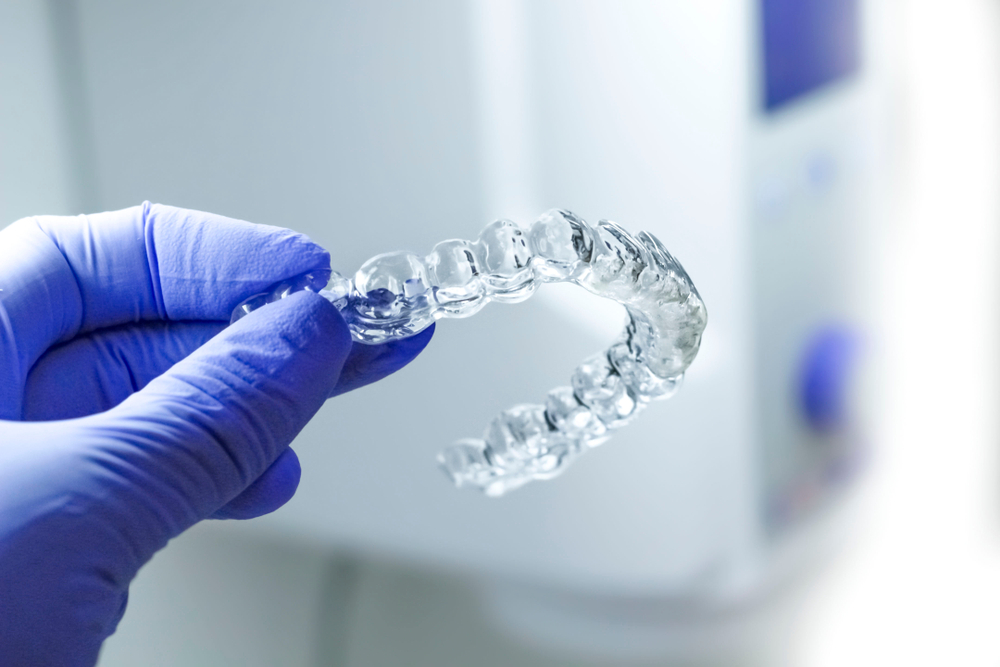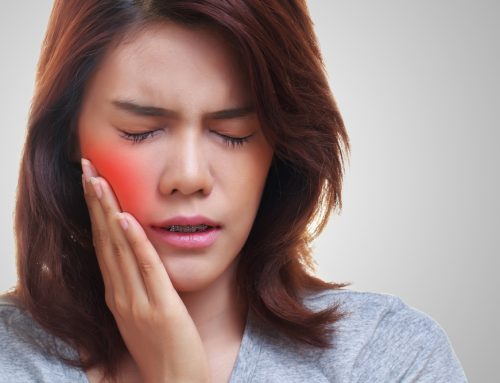It’s important to have a healthy smile that looks and feels good. Despite how well your brush, floss, and keep consistent with your dental checkups, there may still be issues… painful issues. This article explores the benefits of a night mouthguard, to help determine if it’s the right choice for you.
WHAT IS A NIGHT MOUTH GUARD
We’re specifying that this article is about “night” mouthguards, because many people think of football when they hear the term “mouthguard”.
A mouthguard designed for sports is made from a soft, absorbing material that helps to cushion a blow to your teeth. They’re designed specifically to prevent breaking or losing a tooth during the game. Doctors have also discovered that playing with a mouthguard in, significantly reduces the number of concussions athletes experience.
A night mouthguard is often recommended by your dentist who can make your customized device for you. These mouthguards protect your teeth and jaw from a variety of dental issues.
WHY YOU MIGHT NEED A NIGHT MOUTHGUARD
Your dentist may recommend a mouthguard for any number of reasons.
- SLEEP APNEA: A mandibular advancement device is used for sleep disorders such as sleep apnea. It may sound weird that putting something in your mouth helps to unblock your airways, but it is beneficial for many. By wearing the mouthguard on the lower arch, your tongue and jaw reposition, opening the airways. This is why loud snorers often find relief with a mouthguard.
- TEMPOROMANDIBULAR JOINT (TMJ) PROBLEMS: If you experience pain on one side of your jaw or ear, or feel popping when eating or yawning, then you may want to speak to your dentist. Millions of Canadians experience TMJ complications which are usually treated with a night mouthguard. The mouthguard allows your jaw muscles to rest and recover while you sleep, rather than heightening the problem.
- GRINDING OR CLENCHING: The clinical term for this condition is “bruxism”, which has a few causes including a misaligned bite, acid reflux, stress, it can even be a side effect of some medications. When you grindyour teeth, you’re wearing down the enamel which can break fillings and cause sensitivity, among other repercussions.
STORE BOUGHT VS CUSTOMIZED MOUTHGUARDS
Once you and your dentist decide you need a night mouthguard, there are usually two options:
- STORE BOUGHT guards are inexpensive and available at most pharmacies here in the High Prairie area. These guards often come in “small”, “medium”, or “large”. It’s usually best to try medium, and determine your fit from there. These night mouthguards are designed to fit as many people as possible, so it’ll probably feel bulky. Speaking is difficult, and some people have a hard time breathing (which is why they’re not recommended for those with sleep apnea).
- CUSTOM MADE mouthguards are a much better fit, which makes them ideal for opening your airways. They’re comfortable and rarely impede your sleep. This option is more expensive, but you’ll probably find some (if not all) of the cost is covered by dental insurance.
Two appointments are often required when your dentist makes your mouthguard. The first is for taking impressions of your teeth. These are turned into a model which is sent to a laboratory. The mouthguard is constructed around the model for a perfect custom fit. When it comes back from the lab, a second appointment is used to confirm its fit.
CARING FOR YOUR NIGHT MOUTHGUARD
Whether you choose a store bought or custom-made mouthguard, you’ll want to sanitize it daily. Your dentist will provide you with proper cleaning instructions. Keep in mind that many mouthguards should not be brushed with a toothbrush, it could scratch the surface. If this is the case, using toothpaste with your fingers is a popular solution.
Soaking your mouthguard in an antimicrobial solution weekly is also important. This could be diluted mouthwash or even denture cleaner. When you’re not wearing your mouthguard, be sure to store it in a dry, ventilated case.



